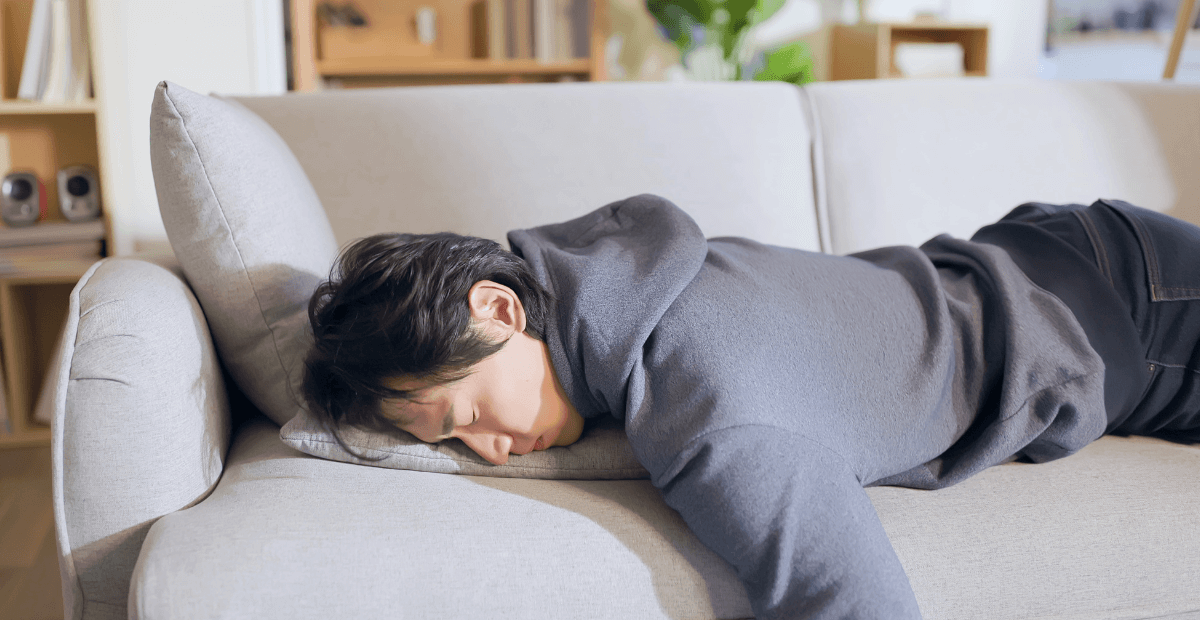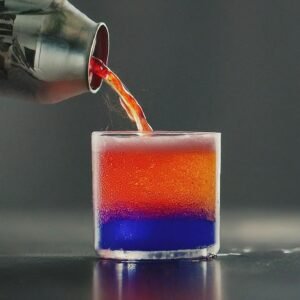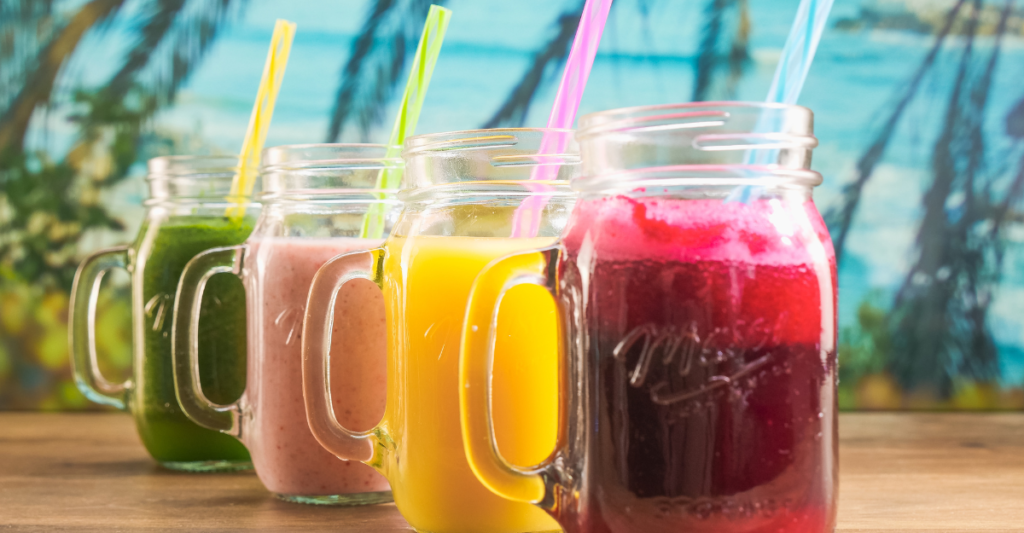Ever grabbed an energy drink hoping to power through a busy day, only to find yourself feeling even more tired afterward? It’s a surprising reality for many.
Understanding why energy drinks can have this paradoxical effect is crucial for those who rely on them for a quick energy boost. Knowing the reasons behind this phenomenon can help you make better choices for your energy levels and overall health.
Why do Energy Drinks make me tired instead of Energized?

You might feel tired after drinking energy drinks due to their high caffeine and sugar content. Caffeine can lead to a crash once its effects wear off, causing fatigue. Similarly, the sugar in energy drinks can spike your blood sugar levels, followed by a rapid drop, leading to tiredness.
Additionally, some ingredients in energy drinks, like taurine, may interact with caffeine, causing unpredictable effects.
Dehydration from caffeine’s diuretic effect also contributes to fatigue. Finally, individual differences, such as caffeine sensitivity, can make you feel more tired instead of energized. Being mindful of these factors can help you manage your energy levels better. Also explore the Best Energy Drink to Keep You Awake and Focused.
The Role of Caffeine
1. Caffeine and the Body
Caffeine is the primary stimulant in energy drinks. It works by blocking adenosine, a neurotransmitter that promotes sleep, thereby increasing alertness and reducing the perception of fatigue. Caffeine also stimulates the release of adrenaline, which boosts your energy levels and prepares your body for a fight-or-flight response.
2. Caffeine Crash
However, after the initial surge in energy, you may experience a “caffeine crash.” This occurs because the body quickly metabolizes caffeine, leading to a sudden drop in energy levels. The crash can make you feel even more tired than before you consumed the energy drink.
Sugar Content in Energy Drinks
1. Sugar High and Crash
Many energy drinks are loaded with sugar, providing a quick spike in blood sugar levels, giving you an immediate burst of energy. Unfortunately, this is often followed by a rapid decline, known as a sugar crash. This drop in blood sugar levels can leave you feeling exhausted and sluggish.
2. Insulin Response
When you consume high amounts of sugar, your body releases insulin to regulate blood sugar levels. This insulin response can sometimes overshoot, causing blood sugar levels to plummet. This hypoglycemic state contributes significantly to the feelings of fatigue. Also explore the Energy drinks with low Caffeine.
Ingredients and Additives
1. Other Stimulants
Energy drinks often contain other stimulants like taurine, guarana, and ginseng. While these ingredients can provide a temporary boost, their effects can vary widely among individuals. Over time, the body may become accustomed to these stimulants, reducing their effectiveness and potentially leading to increased fatigue.
2. Additives and Sleep Disruption
Additives in energy drinks, including artificial colors and preservatives, can negatively impact sleep quality. Poor sleep quality can lead to daytime fatigue, creating a vicious cycle where you rely on energy drinks to stay awake, but they disrupt your sleep and make you more tired.
5 Common Ingredients in Energy Drinks Making You Feel Tired

Here are the 5 ingredients in energy drinks making you feel tired. Also explore the energy drinks without Carbonation.
1. Caffeine
Caffeine boosts energy but can lead to a crash once its effects wear off. This sudden drop can leave you feeling more tired than before. It also disrupts sleep patterns, contributing to overall fatigue. Over Consumption may cause jitteriness and anxiety, exacerbating tiredness.
2. Sugar
Energy drinks are often high in sugar, causing a quick spike in blood sugar levels followed by a rapid crash. This fluctuation can lead to feelings of tiredness and lethargy. The insulin response to high sugar intake further contributes to energy dips and fatigue.
3. Taurine
Taurine is included to enhance physical and mental performance. However, in high doses, it can lead to overstimulation, causing subsequent fatigue. Its interaction with other stimulants in energy drinks can also disrupt sleep, leading to daytime tiredness.
4. Guarana
Guarana contains caffeine and provides an extra boost, but it can intensify caffeine’s effects, leading to a more severe crash. The prolonged stimulant effect can disrupt sleep patterns, resulting in tiredness and decreased alertness during the day.
5. Artificial Additives
Artificial colors, flavors, and preservatives in energy drinks can negatively impact your body. These additives can cause inflammation and stress on the body’s systems, contributing to overall fatigue. Poor sleep quality due to these additives also leads to feeling tired.
Dehydration and Energy Levels
1. Diuretic Effect of Caffeine
Caffeine is a diuretic, meaning it increases urine production and can lead to dehydration. Dehydration is a common cause of fatigue because it affects every system in your body, including your energy levels.
2. Importance of Hydration
Staying hydrated is crucial when consuming energy drinks. Drinking plenty of water alongside your energy drink can help mitigate the diuretic effects of caffeine and maintain your energy levels.
Individual Differences
1. Variability in Caffeine Sensitivity
People metabolize caffeine differently due to genetic variations. Some people are more sensitive to caffeine, experiencing stronger and longer-lasting effects, while others may metabolize it quickly and feel a crash sooner.
2. Lifestyle and Diet
Your overall lifestyle and diet play significant roles in how energy drinks affect you. A balanced diet, regular exercise, and adequate sleep can help manage energy levels better than relying solely on energy drinks.
Can energy drinks land you in the emergency room?

Yes, energy drinks can land you in the emergency room. Around 20,000 ER visits in the U.S. each year are linked to energy drinks. High caffeine and sugar levels can cause heart palpitations, high blood pressure, and severe dehydration.
In some cases, mixing energy drinks with alcohol or other drugs increases the risk.
For example, a single can of some energy drinks can contain up to 500 mg of caffeine—equivalent to drinking five cups of coffee at once! To stay safe, always check the labels, limit your intake, and avoid mixing with alcohol. Stay informed and mindful about your consumption.
Also explore the side effects of drinking energy drinks.
5 Symptoms of energy drink withdrawal
When you suddenly stop consuming energy drinks, your body may react with several withdrawal symptoms. Understanding these symptoms can help you manage the transition more smoothly. Here are five common symptoms of energy drink withdrawal:
1. Headaches
Headaches are a common symptom of energy drink withdrawal. The caffeine in energy drinks constricts blood vessels, and suddenly stopping can cause them to expand, leading to throbbing headaches. According to studies, 50% of people who quit caffeine experience withdrawal headaches. Staying hydrated and gradually reducing intake can help manage this.
2. Fatigue
Without the caffeine boost from energy drinks, you might feel extremely tired and lethargic. This fatigue can be intense because your body has become reliant on the stimulant to stay awake. It can last for a few days to a week, but getting enough rest and eating a balanced diet can help ease this symptom.
3. Irritability
Energy drink withdrawal can make you feel irritable and anxious. The sudden drop in caffeine levels affects your mood and can cause irritability. Nearly 13% of caffeine withdrawal sufferers report irritability. Engaging in stress-relief activities like exercise or meditation can help you manage this symptom.
4. Difficulty Concentrating
Caffeine enhances focus and alertness, so stopping energy drinks can lead to difficulty concentrating. This symptom is due to the brain adjusting to the absence of its regular caffeine stimulation. It’s helpful to break tasks into smaller steps and take frequent breaks to manage concentration issues during withdrawal.
5. Depressed Mood
A depressed mood is another potential withdrawal symptom. Caffeine influences neurotransmitters like dopamine, which affect mood. Without caffeine, you might feel down or less motivated. This can last a few days to a week. Staying active, socializing, and engaging in hobbies can help improve your mood during this period. Also explore Most Unhealthy Energy Drinks.
Conclusion
Energy drinks can make you tired due to factors like caffeine crashes, sugar crashes, additional stimulants, dehydration, and individual differences in caffeine metabolism.
If you find energy drinks leaving you more tired, consider moderating your intake, staying hydrated, and focusing on a healthy lifestyle to boost your energy levels naturally.

